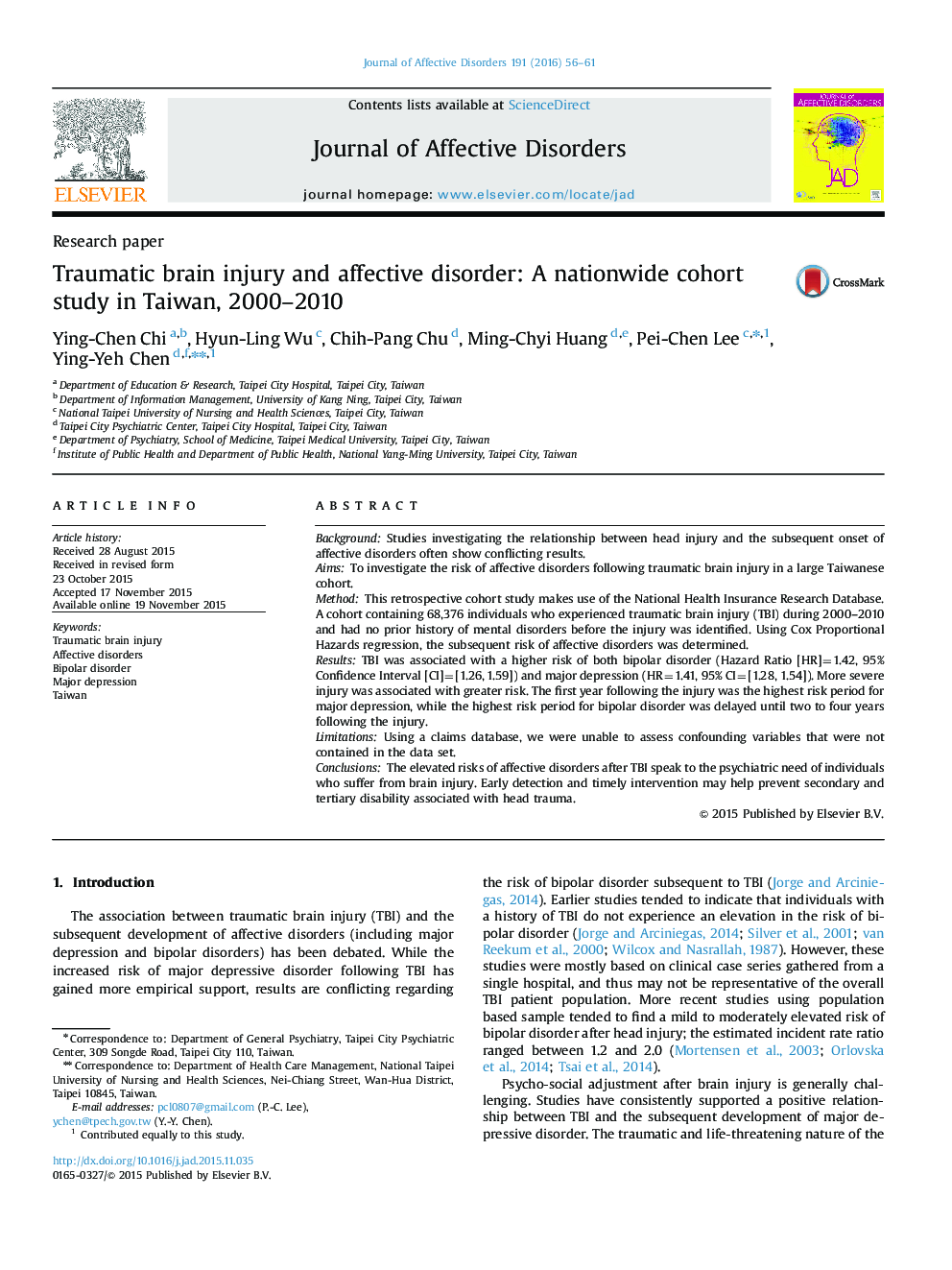| کد مقاله | کد نشریه | سال انتشار | مقاله انگلیسی | نسخه تمام متن |
|---|---|---|---|---|
| 6230525 | 1608134 | 2016 | 6 صفحه PDF | دانلود رایگان |
- Traumatic Brain Injury was associated with an increased risk of affective disorders.
- The risk elevation was particularly high among those who suffered from severe head injury.
- There was a greater risk for bipolar disorder during the two to four years following the injury.
- For major depressive disorder, the significant increase in risk persisted for more than five years after the injury.
- Early detection and timely intervention may help prevent secondary and tertiary disability associated with head trauma.
BackgroundStudies investigating the relationship between head injury and the subsequent onset of affective disorders often show conflicting results.AimsTo investigate the risk of affective disorders following traumatic brain injury in a large Taiwanese cohort.MethodThis retrospective cohort study makes use of the National Health Insurance Research Database. A cohort containing 68,376 individuals who experienced traumatic brain injury (TBI) during 2000-2010 and had no prior history of mental disorders before the injury was identified. Using Cox Proportional Hazards regression, the subsequent risk of affective disorders was determined.ResultsTBI was associated with a higher risk of both bipolar disorder (Hazard Ratio [HR]=1.42, 95% Confidence Interval [CI]=[1.26, 1.59]) and major depression (HR=1.41, 95% CI=[1.28, 1.54]). More severe injury was associated with greater risk. The first year following the injury was the highest risk period for major depression, while the highest risk period for bipolar disorder was delayed until two to four years following the injury.LimitationsUsing a claims database, we were unable to assess confounding variables that were not contained in the data set.ConclusionsThe elevated risks of affective disorders after TBI speak to the psychiatric need of individuals who suffer from brain injury. Early detection and timely intervention may help prevent secondary and tertiary disability associated with head trauma.
Journal: Journal of Affective Disorders - Volume 191, February 2016, Pages 56-61
